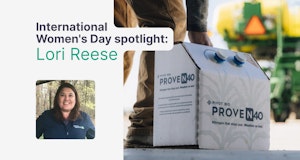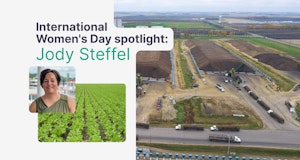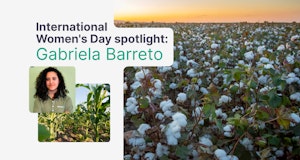
In my first three months with Leaf I’ve noticed a recurring theme: companies that have created one integration with an equipment manufacturer or imagery provider are now wondering how to scale these integrations with different partners. While focusing on the biggest direct integration need first, often John Deere or Climate FieldView, may seem strategic, this approach excludes a lot of other valuable equipment data and doesn’t provide a scalable solution; every subsequent integration has to be created from scratch again.
I’m very familiar with this concept from my role at Twilio: take rideshare providers as an example. Most of them started in the USA and, after experiencing rapid growth, decided to expand internationally. Being able to deliver messages to both riders and drivers within seconds is key to the customer experience, and therefore the rideshare provider’s success. They might have been able to create their own communication technology in the US through local hosting providers, but they would have to create this from scratch again in every new country they launched; Twilio fulfills this need by delivering a scalable solution globally.
This sums up the Inventor’s Paradox: Rather than addressing the immediate problem, it is more effective to create a comprehensive solution that addresses the current need and creates scalability for future growth. This concept also applies to everyday issues: It’s easier to save on all my insurance needs (bundling them for multi line discounts) than trying to save on just car insurance or home insurance.

At Leaf, we see a very similar pattern when it comes to creating API integrations: the initial Leaf connection takes our clients an average of 400 developer hours to establish. After that however, each integration with an Original Equipment Manufacturer (OEM) takes an average of 30 developer hours to complete. Only having to authenticate with every additional OEM, instead of having to establish the connection, create a file conversion model etc., makes a huge difference in workload. The principle of a Leaf client integrating with another OEM is very similar to the principle of Twilio’s rideshare clients launching in a new country: they’ve done the hard work already and scaling becomes easy.
Once an integration has been established through Leaf, the API maintenance components benefit from the same principle of scalability: our clients spend an average of 40 developer hours per year on maintenance per API. Compare that to a whopping 800 developer hours on average per API connection for businesses that have created integrations with OEMs directly, and it becomes very obvious why some businesses are able to scale their own product a lot quicker than those who are constantly dealing with maintenance!
If this raises any questions with you and you’d like to discuss this further, except for my insurance needs - I’ve got those covered, please drop me a line; I look forward to having a chat!
Get a demo




